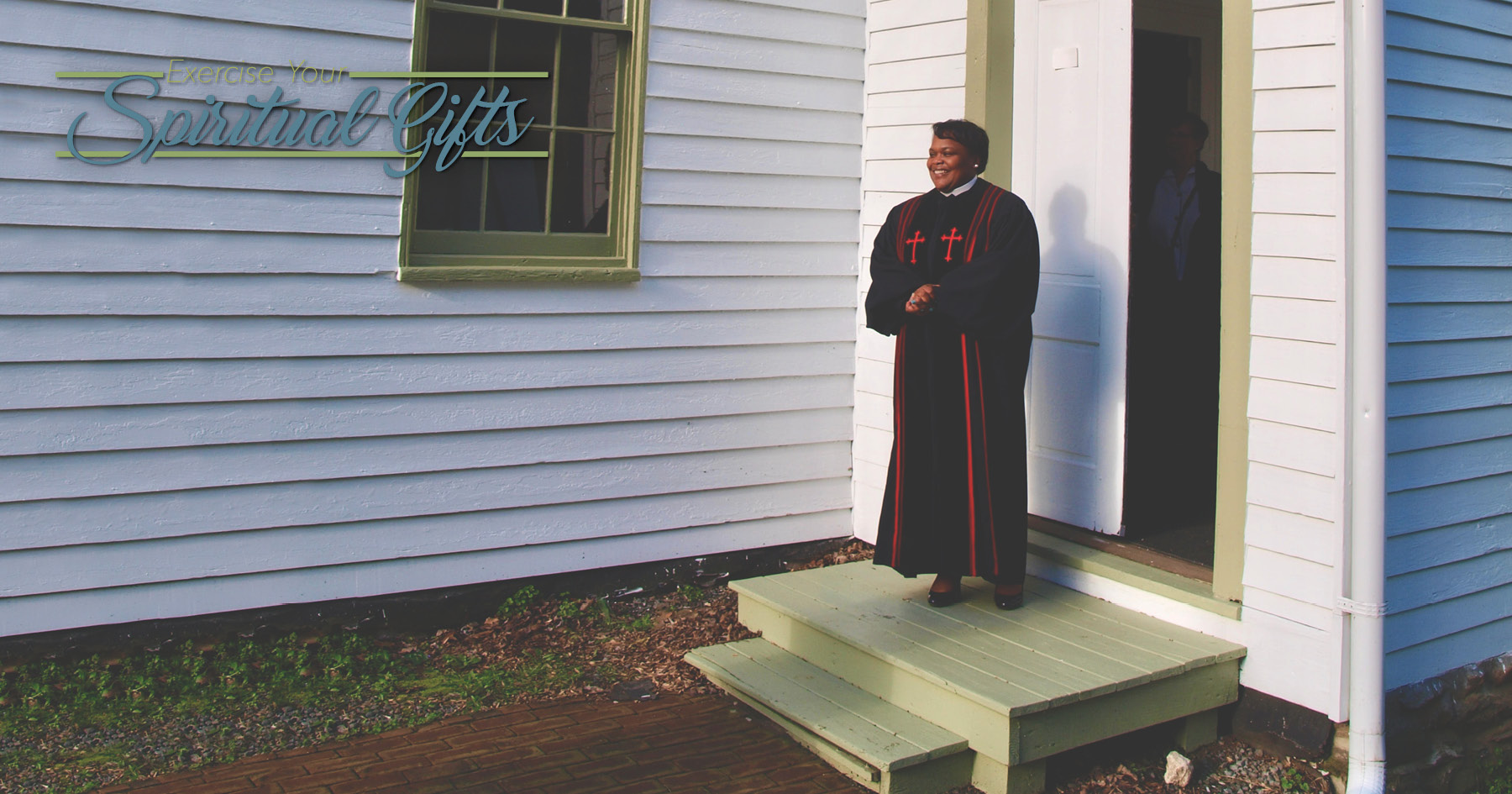
The Gift of Pastor
“Pastors are called shepherds because their calling and gifting are much like those who care for sheep. They are called and gifted to care for the spiritual well-being of a local body of God’s people. Pastors are first and foremost servants…. They are given a mixture of abilities by grace that allows them to serve the needs of an entire community. The goal of the pastor is to reveal the glory of God in Christ by the power of the Holy Spirit to a people who need God’s grace for life. The primary way the pastor will do this is by teaching the Word of God to the church…. By teaching the Scriptures to the church, the pastor feeds the ‘sheep’ of God.”
This spiritual gift is familiar to us as we recognize the gifts of a pastor and whether they have them or not. Some churches have someone who leads them that has more of the gift of preaching while others have this gift of pastoring. It is the blessed church that has a leader who has both these spiritual gifts.
As the above passage says, pastor as servant and teacher are the primary roles of those who have this gift. As the sheep of the Good Shepherd know his voice, so the flock (church members) know and trust their relationship with their pastor. If they do not, that relationship for all involved will suffer. The pastor as teacher is to open the minds of the flock to allow them to interpret and internalize the word of God rather than to lay down the law and think only as the pastor does. In this way, the pastor is leading the congregation to God rather than to themselves.
For those of us who do not have the spiritual gift of pastor, we are still called to exercise this gift with the possibility of gaining skills in this area. So here are four ideas to ease into serving others while using some of your God given spiritual gifts:
1. Take the Yoke
Since your pastor is serving the whole congregation, it might be appropriate for you to offer to help shepherd. There may be those in your Sunday school class or small group that you can mentor. Be sure to run this by the pastor and the person who you feel called to serve. This must be a mutually agreeable relationship. With the help and blessing of the pastor, there may be others who might also help. Some churches may already have shepherd groups that are led and served by an elder or other leader. If not, you might encourage this practice in your church.
2. School’s Open
If you are a minister and do not have the gift of pastoring, never fear. There are many ways you can hone some of these skills. Plan to take some classes at a local seminary or online dealing with pastoring. If these are not available to you, contact Michael Qualls, the director of the Program of Alternate Studies (PAS) and he may be able to help you attend several PAS classes. The Pastoral Development Ministry Team (PDMT) hosts many different webinars at different times and Pam Phillips-Burk can help with specific ways to help you find continuing education. The Discipleship Ministry Team (DMT) also has Discipleship Blueprints that can be done online or in person when circumstances allow to help understand the roles of the pastor, elders, and other church leaders. Check out cpc.app-staging.com to find out more.
3. What Does It Mean?
Do some background research about pastoring. Find out what it means, where the word came from and perhaps something about the connection between pastoring and shepherding. You might also investigate the specifics as to why pastoring and teaching are so connected with this spiritual gift.
4. Spiritual Guide
Whether you are a pastor or not, you might consider asking someone to be a spiritual guide or mentor for you. The person you choose needs to have mentoring qualities, counseling skills, be a truth-teller, and have some experience in the area you would like to work on. There are people that do this for a living and require payment for their services and others who you might simply identify as someone who might guide you and walk alongside you in your journey.
